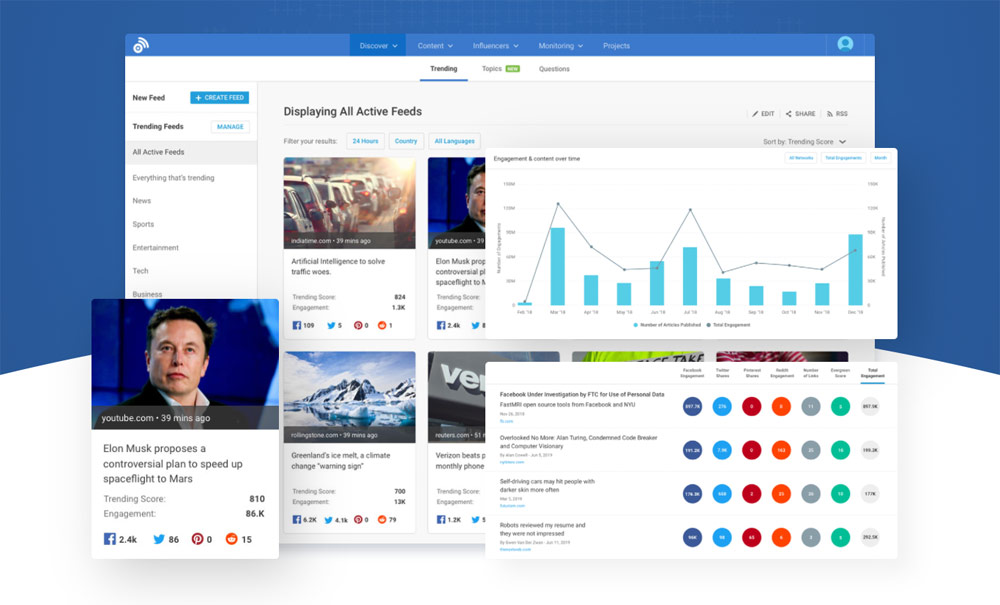In the ever-evolving landscape of digital marketing, understanding your competitors is essential for success. Competitor SEO tracking allows businesses to analyze their rivals' strategies and adapt their own efforts to gain a competitive edge. By monitoring keywords, backlinks, and overall rankings, companies can make informed decisions that help them stand out in a crowded market. This article delves into the nuances of competitor SEO tracking, providing you with the insights necessary to refine your approach and elevate your online presence.
As the digital marketplace continues to expand, the importance of competitor analysis cannot be overstated. Businesses that neglect to monitor their competitors risk falling behind, as they may miss valuable opportunities or fail to anticipate market trends. With effective competitor SEO tracking, companies can identify strengths and weaknesses in their own strategies, enabling them to capitalize on gaps in the market and improve their overall performance. In this article, we will explore various aspects of competitor SEO tracking, from the tools available to the methodologies that yield the best results.
Furthermore, understanding your competitors’ tactics can provide invaluable insights into consumer behavior and preferences. By examining what works for others in your industry, you can refine your own strategies to better meet the needs of your target audience. This article will guide you through the process of competitor SEO tracking, revealing how to leverage this knowledge to boost your business's online visibility and drive more traffic to your site.
Read also:Okie Dokie An Indepth Look Into Its Origins And Cultural Impact
What is Competitor SEO Tracking?
Competitor SEO tracking involves monitoring and analyzing the online strategies employed by your competitors. This includes observing their keyword usage, backlink profiles, and overall search engine rankings. By gathering this information, you can gain insights into their strengths and weaknesses, allowing you to adapt your own strategies to achieve better results. Key components of competitor SEO tracking include:
- Keyword Analysis: Understanding which keywords your competitors are targeting.
- Backlink Analysis: Assessing the quality and quantity of backlinks pointing to your competitors' websites.
- Content Strategy: Evaluating the types of content your competitors produce and promote.
- Rank Tracking: Monitoring your competitors' positions in search engine results pages (SERPs).
Why is Competitor SEO Tracking Important?
Competitor SEO tracking is crucial for several reasons:
- Identifying Opportunities: By analyzing competitors, you can discover gaps in their strategies that your business can exploit.
- Staying Ahead of Trends: Monitoring competitors helps you stay informed about industry trends and shifts in consumer preferences.
- Improving Your Strategy: Learning from competitors allows you to refine your own SEO tactics, making them more effective.
- Benchmarking Performance: Understanding where you stand in relation to your competitors helps you set realistic goals and measure success.
How to Begin Competitor SEO Tracking?
Starting your competitor SEO tracking journey involves a few essential steps:
- Identify Your Competitors: Determine who your primary competitors are in your industry.
- Use SEO Tools: Leverage tools like SEMrush, Ahrefs, or Moz to gather data on your competitors.
- Analyze Data: Review the collected data to identify key trends and insights.
- Implement Changes: Adapt your SEO strategy based on your findings to improve your performance.
What Tools are Available for Competitor SEO Tracking?
There are several tools available that can assist with competitor SEO tracking, including:
- SEMrush: A comprehensive tool offering insights into keywords, backlinks, and more.
- Ahrefs: Known for its powerful backlink analysis features and keyword research capabilities.
- Moz: Provides a suite of tools for tracking rankings and analyzing competitors.
- SpyFu: Focuses on competitor keyword analysis, revealing what your rivals are bidding on for PPC ads.
How to Analyze Your Competitors’ Keywords?
Keyword analysis is a critical component of competitor SEO tracking. Here’s how to effectively analyze your competitors’ keywords:
- Identify Target Keywords: Use SEO tools to see which keywords drive traffic to your competitors’ websites.
- Assess Keyword Difficulty: Evaluate the competition for each keyword to determine if it’s worth targeting.
- Explore Long-Tail Keywords: Look for less competitive, long-tail keywords that may provide opportunities for traffic.
How to Evaluate Competitors’ Backlink Profiles?
Backlink analysis is essential for understanding the authority and influence of your competitors. To evaluate their backlink profiles:
Read also:World Wildlife Federation A Global Force For Nature Conservation
- Use Backlink Analysis Tools: Tools like Ahrefs or SEMrush can provide insights into your competitors' backlinks.
- Look for High-Quality Links: Identify backlinks from authoritative sites that could be valuable for your own strategy.
- Assess Link Diversity: A diverse backlink profile is a sign of a robust SEO strategy.
What Content Strategies are Competitors Using?
Content is king in the world of SEO, and analyzing your competitors' content strategies can reveal valuable insights:
- Blog Posts: Examine the types of blog content that are driving traffic to their sites.
- Social Media Activity: Observe how they engage with their audience on social media platforms.
- Videos and Infographics: Determine if they are utilizing visual content effectively.
How to Implement Findings from Competitor SEO Tracking?
Once you have gathered and analyzed data on your competitors, it’s time to implement what you’ve learned:
- Adjust Your Keyword Strategy: Incorporate high-value keywords into your content and meta tags.
- Build Quality Backlinks: Reach out to authoritative sites for guest posting or collaboration opportunities.
- Enhance Content Quality: Create high-quality, engaging content that resonates with your target audience.
In conclusion, competitor SEO tracking is a vital aspect of digital marketing that can significantly enhance your online presence and overall strategy. By closely monitoring your competitors, you can identify opportunities, refine your approach, and ultimately drive more traffic to your website. Implementing the insights gained from tracking your competitors will ensure that your business stays ahead in the competitive landscape.


